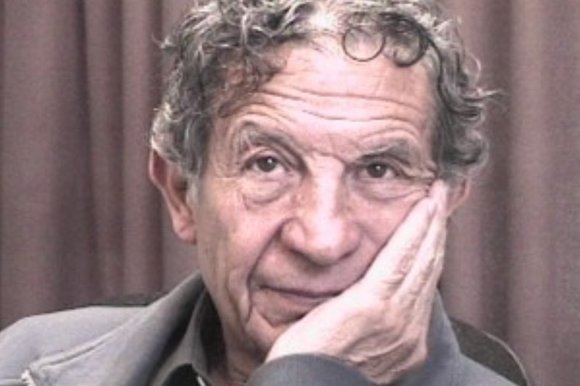RELAMI Altura, Octubre 2015. (English version below)
HOMENAJE GUSTAVO ZUBIETA-CASTILLO
1926-2015
Homenaje “In Memoriam”
A la Familia y a su hijo Dr. Gustavo Zubieta Calleja (La Paz – Bolivia) del Ilustre y Honorable Profesor Dr. Gustavo Zubieta-Castillo MD (20 mayo 1926 a 17 septiembre 2015, 89 años) médico boliviano, experto en medicina de altitud, fisiólogo, cirujano militar, escritor, pintor, nombrado como el “Gurú de la montaña” en el Colegio Médico de San Juan en Bangalore, India (1).
Ha trabajado en fisiología de alta montaña. Nació a 3800m en Oruro, Bolivia, y después de estudiar medicina en la Universidad Mayor de San Andrés en la ciudad de La Paz, a 3.513 m sobre el nivel del mar, enfoco todo su trabajo a temas de fisiología en alta montaña y más tarde evolucionó al estudio de la patología derivada de la altitud. Propuso nuevos conceptos y la comprensión de lo que se conoce como la Enfermedad Crónica de Montaña. Esta patología objetivada a gran altura, con cifras por encima de los valores normales para tales altitudes, se caracteriza por un aumento del número de glóbulos rojos, cianosis, fracaso ventilatorio y alteraciones respiratorias con hipertensión pulmonar e hipertrofia del ventrículo derecho, que inicialmente se afirmaba que se debía a “la pérdida de la adaptación”. El profesor Gustavo Zubieta Castillo cambió esta interpretación, y el estaba firmemente convencido de que: “Los sistemas orgánicos de los seres humanos y de todas las demás especies tienden a adaptarse a cualquier cambio ambiental y circunstancias en un período óptimo de tiempo, y nunca tienden a la regresión lo que conduciría inevitablemente a la muerte” (2). Este concepto ha cambiado la forma en como se interpretan las enfermedades de gran altitud.
El 9 de julio de 1970, Zubieta-Castillo funda la primera clínica de gran altura en el mundo y que se encuentra en La Paz, Bolivia, denominada “Instituto de Patología en la Altura”. Una de sus teorías es que el hombre tiene la extraordinaria capacidad de adaptación a vivir en un ambiente hipóxico incluso en el punto más alto del planeta Tierra: la cumbre del monte Everest de 8842m (3).
Por tanto; es para nosotros, la América Andina agrupada en la “Red Latinoamericana de Investigación de Medicina Intensiva en la Altura” – RELAMI-Altura, ofrecer este homenaje póstumo a tan ilustre colega y profesor boliviano, mostrar nuestro agradecimiento por haber tenido el honor de compartir momentos de sublime aprendizaje, y por marcar el sendero a seguir en la Medicina en la Altura.
Atentamente
PRIMERA JUNTA DIRECTIVA
Dr. Manuel Jibaja Vega. COORDINADOR GENERAL,
Dr. E. Enrique Maraví Poma.COORDINADOR EUROPA.
Dr. José Antonio Carmona Suazo. COORDINADOR MÉXICO.
Dr. Guillermo Ortiz Ruiz. COORDINADOR COLOMBIA
Dr. Ignacio Vladimir Granda Luna. COORDINADOR ECUADOR.
Dr. Amilcar Tinoco Solórzano. COORDINADOR PERÚ.
Dr. Freddy Sandi Lora. COORDINADOR BOLIVIA.
HOMAGE GUSTAVO ZUBIETA-CASTILLO
1926-2015
IN MEMORIAM
To the family and his son Dr. Gustavo Zubieta-Calleja (La Paz, Bolivia) of the Illustrious Honorable Professor Dr. Gustavo Zubieta-Castillo MD (May 20 1926 to September 17, 2015, 89 years old) bolivian physician, high altitude medicine expert, physiologist, military surgeon, writer, painter, named the “Mountain Guru” at the Medical College of Saint John’s in Bangalore, India (1).
He worked in high altitude physiology. Born at 3800m in Oruro, Bolivia and after studying medicine in the Universidad Mayor de San Andres in the city of La Paz, at 3513m above sea level, he focused all his work on high altitude physiology and later evolved to the study of pathology resulting from high altitude. He proposed new concepts and the understanding of what is known as Chronic Mountain Sickness. This pathology observed at high altitude, with values above the normal ones for such altitude, is characterized by an increase of the number of red blood cells, cyanosis, ventilatory insufficiency and respiratory alterations with pulmonary hypertension and right ventricular hypertrophy, that was initially considered to “loss of adaptation”. Professor Gustavo Zubieta-CAstillo changed this interpretation and he was firmly convinced that “The organic systems of human beings and all other species, tend to adapt to any environmental change and circumstance in an optimal period of time, and never tend towards regression, which would unavoidably lead to death” (2). This concept has changed the way how disease is interpreted at high altitude.
On July 9th, 1970, he created the first high altitude clinic in the world, that is found in the city of La Paz, Bolivia with the name ” Instituto de Patología en la Altura” (‘High Altitude Pulmonary and Pathology Institute”). One of his theories is that man has the extraordinary capacity to adapt to live in a hypoxic environment even in the highest point on planet earth, the summit of Mt. Everest 8842m (3).
Consequently, it is for us, the Andean America gathered int the ‘Red Latinoamericana de Investigación de Medicina Intensiva, en la Altura” – RELAMI-Altura, (“Latin-American Network of High Altitude Intensive Care Research”) to offer this posthumous homage to such an illustrious Bolivian colleague and professor, showing our gratitude for having had the honor of sharing the sublime learning and for showing us the road to follow in High Altitude Medicine.
Referencias,
1. http://altitudeclinic.com/blog/2010/01/the-mountain-guru/
2. http://altitudeclinic.com/blog/2010/07/forever-loss-of-adaptation-does-not-exist/
3. Zubieta-Castillo G, Zubieta-Calleja GR, Zubieta-Calleja L, Zubieta-Castillo N (2008). “Facts that Prove that Adaptation to life at Extreme Altitude (8842m) is possible”. In Adaptation Biology and Medicine, Suppl 5: 348–355. Editors: L. Lukyanova, N. Takeda and P.K. Singal. Copyright © 2008 Narosa Publishing House Pvt. Ltd., New Delhi, India. 26.

